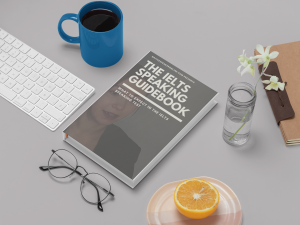So, you have your IELTS Speaking test soon and you have limited opportunities or budget to practise with native speakers? What can you do? Well, it is still possible to improve your speaking. Here’s how.
The importance of listening
In order to talk like native speakers, you first have to listen to what they say. This way, you will learn natural structures and new words that you can use in your speaking. Studies show that you need to hear a new word or structure a certain number of times before it becomes part of your ‘active vocabulary’ – in other words, before you are able to use it in speaking. As an IELTS candidate, it is important to make this process as fast as possible. You can do this by ‘active listening’.
Active listening
Listen to a video or podcast on an everyday topic such as food and drink, health, holidays, public transport, traditions, sport, cinema, etc. In the IELTS Speaking test, the examiner will ask you to talk about everyday topics, so if your time is limited you should avoid unusual or ‘sensitive’ topics such as religion, war, nuclear physics, etc.
– Listen to any words or structures that you think might be useful in the IELTS Speaking test. Pause the recording and write them down.
– Listen for a particular structure that you have difficulty with, for example the present perfect tense. Try to observe how the speaker is using the structure.
How can this website help?
Every week, I’m going to publish some YouTube videos on ‘everyday topics’ which you can listen to. You can find them here. Sometimes I will give you some hints on where you can find useful structures and vocabulary in the video — this will make your listening more active.
In my IELTS Speaking Test preparation pack, I present lots of useful vocabulary and structures for IELTS, including Essential Vocabulary for Part 2. If you have bought the package, I recommend that you watch the videos on my blog and try to notice how these words and expressions are used by native speakers. This activity will help to make them part of your active speaking vocabulary.
But what about the benefits of speaking?
Speaking practice obviously does have important advantages. For example, it helps you improve your fluency, in other words your ability to speak with confidence and without hesitation. However, there are also some ‘non-speaking’ activities that can improve fluency such as thinking in English. Check out this post for more tips.

This FREE eBook Shows You What Kinds of Tasks and Questions to Expect in the IELTS Speaking Test.

Thanx a lot. it is very useful to me
Thank you.Now I know how to practice to speak in English and without speaking to improve my English.